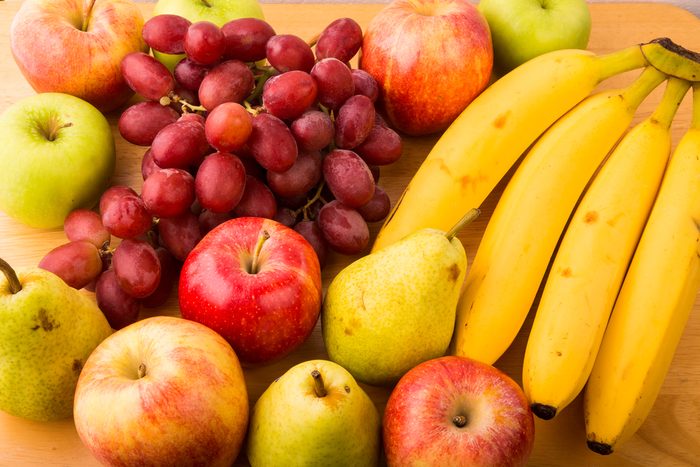
Apples, peaches, bananas, and berries
Insoluble fiber, found in the skin of certain fruits and vegetables, can aggravate the symptoms of IBS. Adults should eat between 22 to 34 grams of fiber each day, recommends the U.S. Department of Agriculture, but if you have irritable bowel syndrome (IBS), you should reach for foods rich in soluble fiber. Skip fruits like apples, peaches, pears, bananas, and berries and replace them with dried fruits and brown rice. If you’re totally craving an apple or peach, peel it first and eat only the flesh. (Here are IBS symptoms and risk factors you probably don’t know about.)
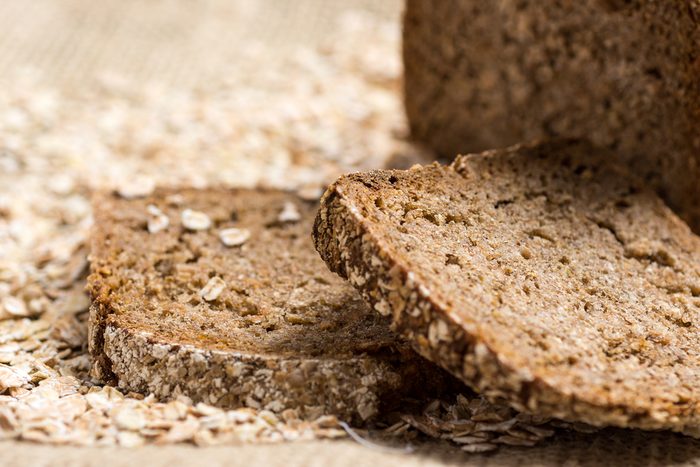
Grains
Any food containing rye, wheat, and barley has gluten in it. A study conducted by the National Institutes of Health found that food allergies like gluten intolerance could be an underlying cause of IBS, so cutting it out of your diet could vastly improve your symptoms. It is estimated that half of IBS patients are gluten intolerant and should avoid these foods because of the damage gluten can do to the intestines. There are tons of gluten-free alternatives out there, so stock your pantry with those instead. (Look for these other 11 silent signs you might have celiac disease.)
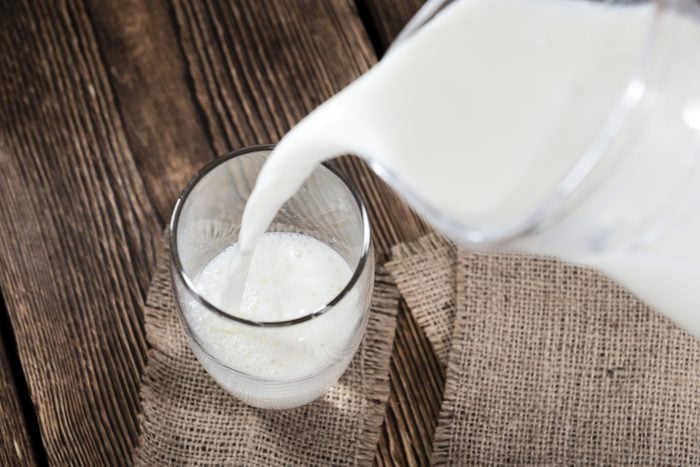
Dairy
The high fat content of many dairy products could cause bloating and pain for people with IBS. Switch to a low-fat or non-fat option to help ease the IBS symptoms. Additionally, many people who live with IBS are lactose intolerant and may be better off switching to soy milks and cheeses. Many practitioners suggest experimenting with different types of dairy to see which ones are trigger foods for your IBS. “If dairy products cause your symptoms to flare up, you can try eating less of those foods,” suggests David S. Shields. MD, board certified gastroenterologist. “You might be able to tolerate yogurt better than other dairy products because it contains bacteria that supply the enzyme needed to digest lactose, the sugar found in milk products,” he says. (Read up on signs you might be lactose intolerant.)
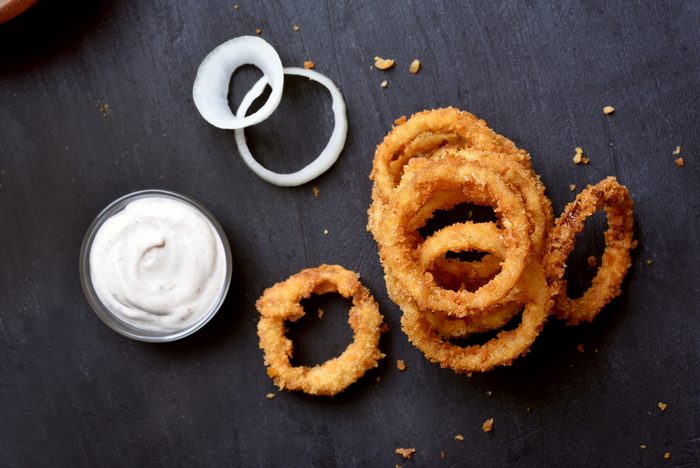
Fried and fatty foods
It’s hard for even the healthiest person to resist French fries, but for people with IBS, fried foods can really irritate the intestines and even cause diarrhea. A study published in the American Journal of Gastroenterology found that fried foods are the most common IBS trigger food reported by patients. Consider grilling or baking your food as an alternative.
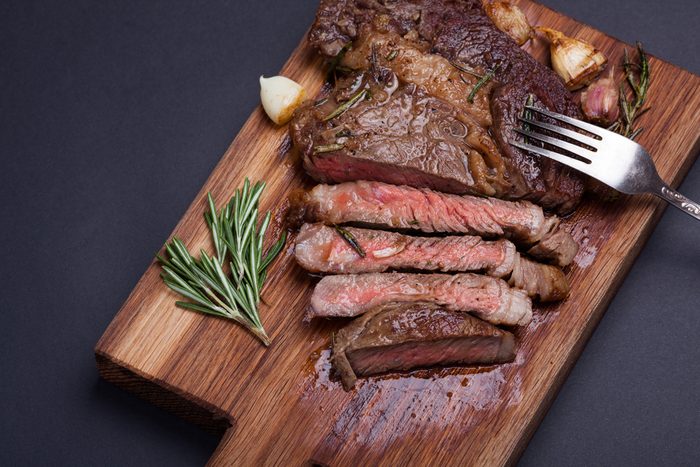
Red meat
Red meat, including beef, pork, and lamb, is known for having a high fat content. Choose lean meats, including chicken and turkey, cold-water fish, such as salmon, and tempeh as replacements, suggest experts at the University of Maryland Medical Center.
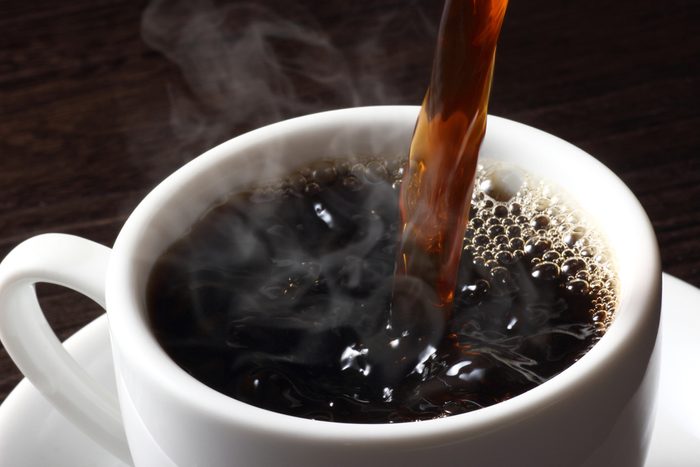
Caffeine
The jolt that a morning cup of coffee brings might help to push through your day, but caffeine can cause lots of problems for people with IBS. It stimulates the gastrointestinal system and is a known diuretic, leading to more bowel movements. It can also worsen dehydration. (Find out why a low-FODMAP diet could be key to easing IBS.)
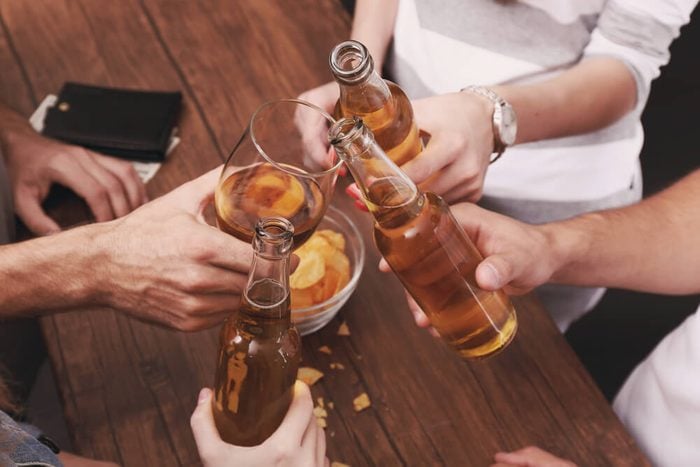
Alcohol
Alcohol is incredibly irritating to your GI system and can also worse dehydration caused by diarrhea, a common symptom of IBS. Drink a cocktail like rum and Coke and you’re courting double the trouble. A study conducted by the National Institutes of Health found that consumption of both carbonated drinks and alcohol were common factors in symptoms associated with diarrhea predominant IBS.
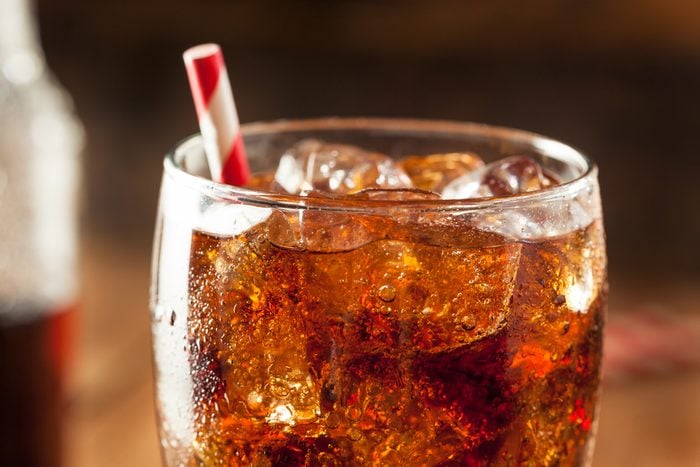
Carbonated drinks
Your favorite diet soft drinks could play a major role in your IBS, says Heather Van Vorous, author of Eating for IBS. Although drinks like ginger ale are known to soothe the stomach, Van Vorous suggests that fizzy sodas and mineral waters can worsen bloating and cause cramps. (Learn other surprising causes of stomach pain.)
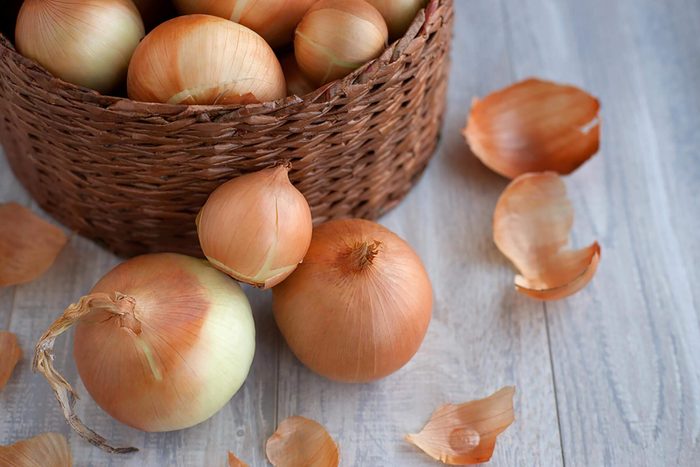
Onions, garlic, and broccoli
Vegetables like onions, garlic, broccoli, and cauliflower can cause painful gas and bloating. Onions, in particular, contain a type of carbohydrate called fructans, which those with IBS are encouraged to avoid. A study published in the journal Gastroenterology found that three of four people with IBS on a low-carb diet experienced immediate relief from symptoms once they made the switch.
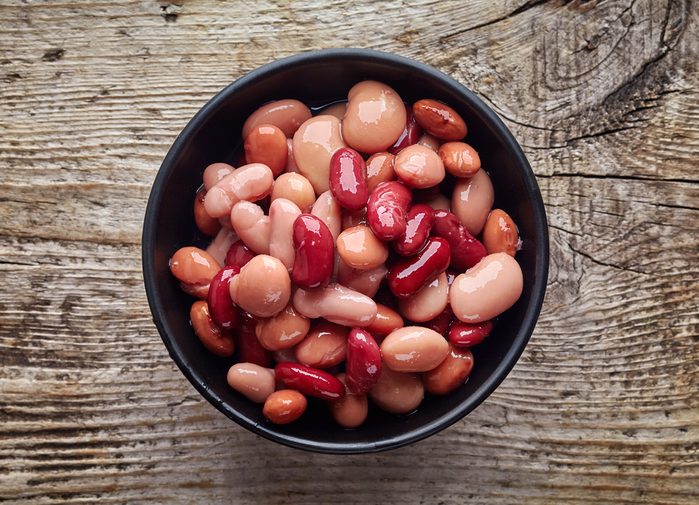
Beans
Beans are high in protein but can also increase painful gas, bloating and cramps. They also contain a carb called galactans, also found in soybeans and legumes. Avoiding beans could help to ease the symptoms of IBS. Find out which other types of carbs people with IBS should never eat.